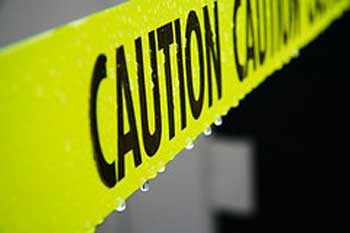Scams to avoid
 0 Comment(s)
0 Comment(s) Print
Print E-mail
Streetwise Guide Beijing, June 3, 2008
E-mail
Streetwise Guide Beijing, June 3, 2008
Friendly students with an agenda
When walking in Wangfujing, and other shopping areas popular with foreigners, you may be approached by a local "student" who starts chatting with you. They will often speak very good English and even help you shop or show you around "just to practice English". After a while comes the suggestion of a lovely teahouse nearby to rest a bit. You’ll be served nice tea in a pleasant atmosphere and no one will mention the price until the bill comes. When it does arrive the amount will be ridiculous. Or they may bring you to an "art professor" or "fellow students" where you will be hit with a really hard-sell. Never eat, drink or buy anything without knowing the price first.

Taxi scam
Jumping into a taxi from the airport, your drive may try to tell you that your hotel is pretty far and that the price will be high. This kindly gent will offer to turn off his meter for an agreed upon "flat rate", but you'll probably wind up agreeing to more than twice the metered fare. Stay with the meter and keep the receipt (automatically generated) in case you feel you have been taken advantage of.
Tour scam
Practiced the world over, this common scam involves your tour stopping at places to buy souvenirs or gifts, almost always over-priced and of low quality. Never feel obliged to buy anything and stay firm under pressure.
Picture-taking scam
Dressing up in traditional clothes for pictures at local tourist spots can be fun and memorable. It can also be expensive if you don't clearly negotiate the price and what the price includes. Often they will tell you after and a friend have posed that the price negotiated was per person. Or they will tell you the price is for only the smallest size print.
Restaurant scam
Pay attention, as you order, to the price of each dish you select. Keep a rough idea in your head about what your total bill should be. Sometimes a restaurant will add money to your bill counting on the fact that you can't read it and haven't paid much attention. Should you contest anything or find a mistake, the server will smile and apologize. You may also find that the cheap beer on the menu is "out of stock" as they try to convince you that the more expensive one is best. When it comes to tea, don't feel compelled to buy expensive tea, no matter how emphatic they are about its virtues. Ask if they have free tea (免费茶 mianfeicha), and if they don't, order what you want to drink, not what they want.
Hutong rickshaw scam
Strolling the Hutong areas is fun but can also be tiring and you might want to take in the sights from the comfort of a rickshaw. Before climbing aboard, clearly negotiate the price for the tour and what it includes-duration, price per person, point-to-point, etc. Common scams are settling on a price for a tour (e.g. RMB 70) only to be told in mid-journey by your driver that this price is per person or per hour and your time is up and you'll have to pay more. Always clearly detail how long your tour will be and where you will go.
Ticket scam
When joining a tour, or being guided at a local sightseeing spot, you may be offered a higher priced ticket including a performance (acrobatics, Peking Opera show, etc) that you don't want to watch. Always ask the price of the sight-only ticket.
Counterfeit notes
Always check change given by street vendors, especially large notes. Things to look out for are the texture (fake notes often feel smoother than real ones), the watermark and drawn lines (they are more defined in counterfeits), the color (more pronounced in fakes) and the collar on Mao's jacket ("ribbed" and easy to feel on a real bill). Avoid accumulating old or tatty notes, but if you do, these can be exchanged at the banks (unfortunately, they won't exchange counterfeits)!
Go to Forum >>0 Comment(s)